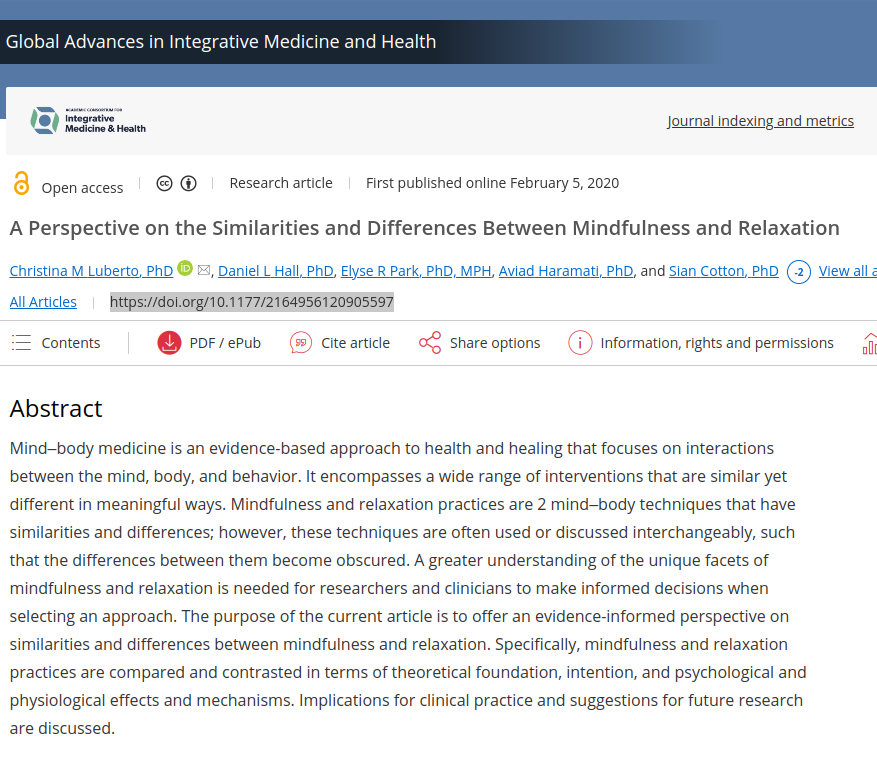Mind–body medicine is an evidence-based approach to health and healing that focuses on interactions between the mind, body, and behavior. It encompasses a wide range of interventions that are similar yet different in meaningful ways. Mindfulness and relaxation practices are 2 mind–body techniques that have similarities and differences; however, these techniques are often used or discussed interchangeably, such that the differences between them become obscured. A greater understanding of the unique facets of mindfulness and relaxation is needed for researchers and clinicians to make informed decisions when selecting an approach. The purpose of the current article is to offer an evidence-informed perspective on similarities and differences between mindfulness and relaxation. Specifically, mindfulness and relaxation practices are compared and contrasted in terms of theoretical foundation, intention, and psychological and physiological effects and mechanisms. Implications for clinical practice and suggestions for future research are discussed.
A Perspective on the Similarities and Differences Between Mindfulness and Relaxation
Publication
Global Advances in Integrative Medicine and Health
Abstract
Web and Email Links
Related Listings
Journal
American Journal of Public Health
A 12-week randomized experiment investigated the effects of daily relaxation breaks on office workers with “normal” blood pressure. Blood pressures of 126 volunteers from the corporate offices of a manufacturing firm were measured biweekly. After four weeks of baseline monitoring, volunteers were divided randomly into three groups: Group A was taught a technique for producing the relaxation response; Group B was “taught” to sit quietly; and Group C was taught nothing. Groups A and B w […]
Journal
Consciousness and Cognition
Although research has found that long-term mindfulness meditation practice promotes executive functioning and the ability to sustain attention, the effects of brief mindfulness meditation training have not been fully explored. We examined whether brief meditation training affects cognition and mood when compared to an active control group. After four sessions of either meditation training or listening to a recorded book, participants with no prior meditation experience were assessed w […]
Journal
Behavior Modification
Sleep latency changes following behavioral interventions for sleep-onset insomnia are only moderate because the majority of insomniacs do not achieve good sleeper status at posttreatment. This study evaluated the efficacy of a multifactor behavioral intervention consisting of stimulus control and relaxation-response training (n = 10) compared to stimulus control alone (n = 10) for sleep-onset insomnia. Only the multifactor subjects' mean posttest sleep latency fell within the good sle […]

